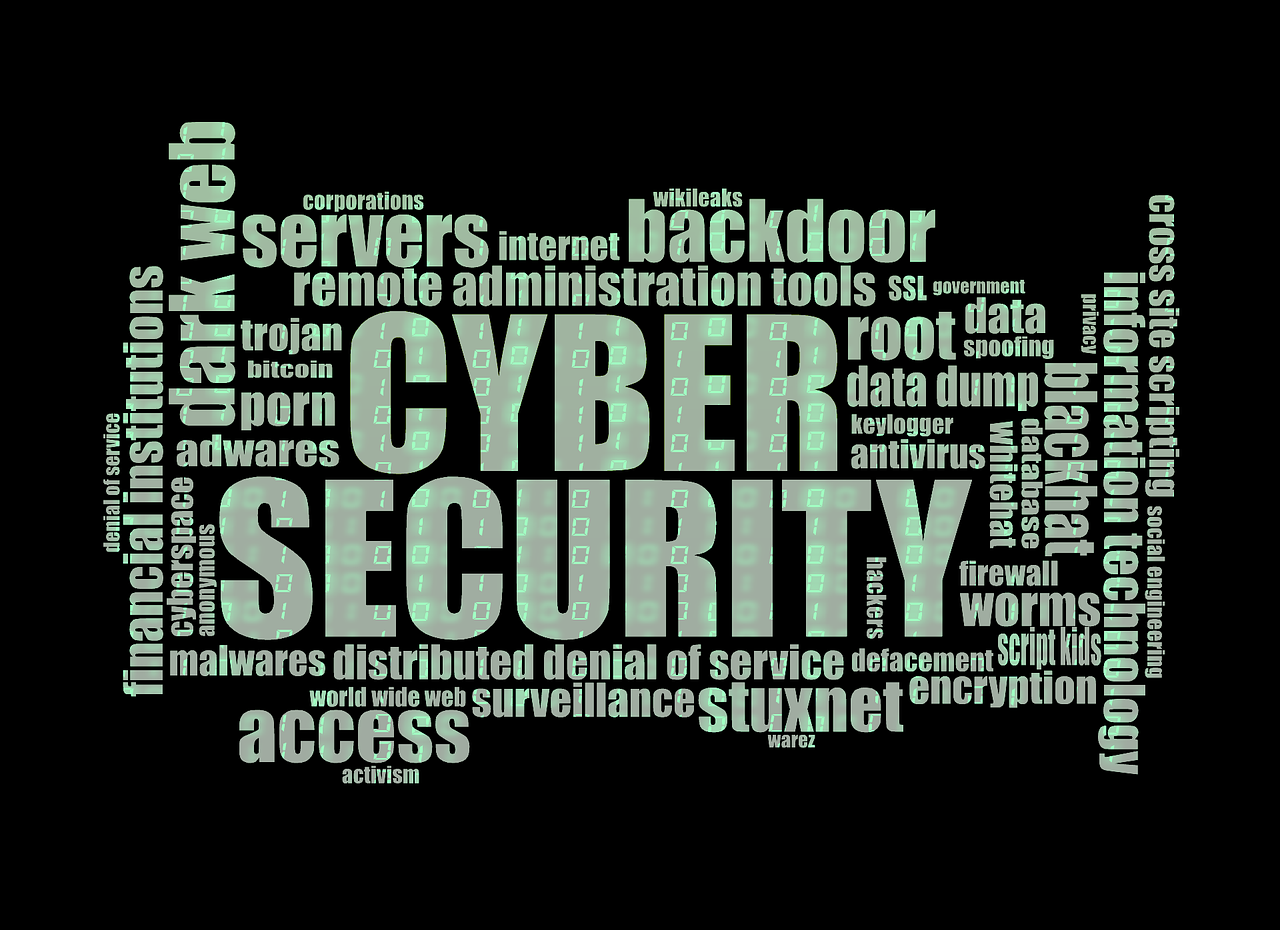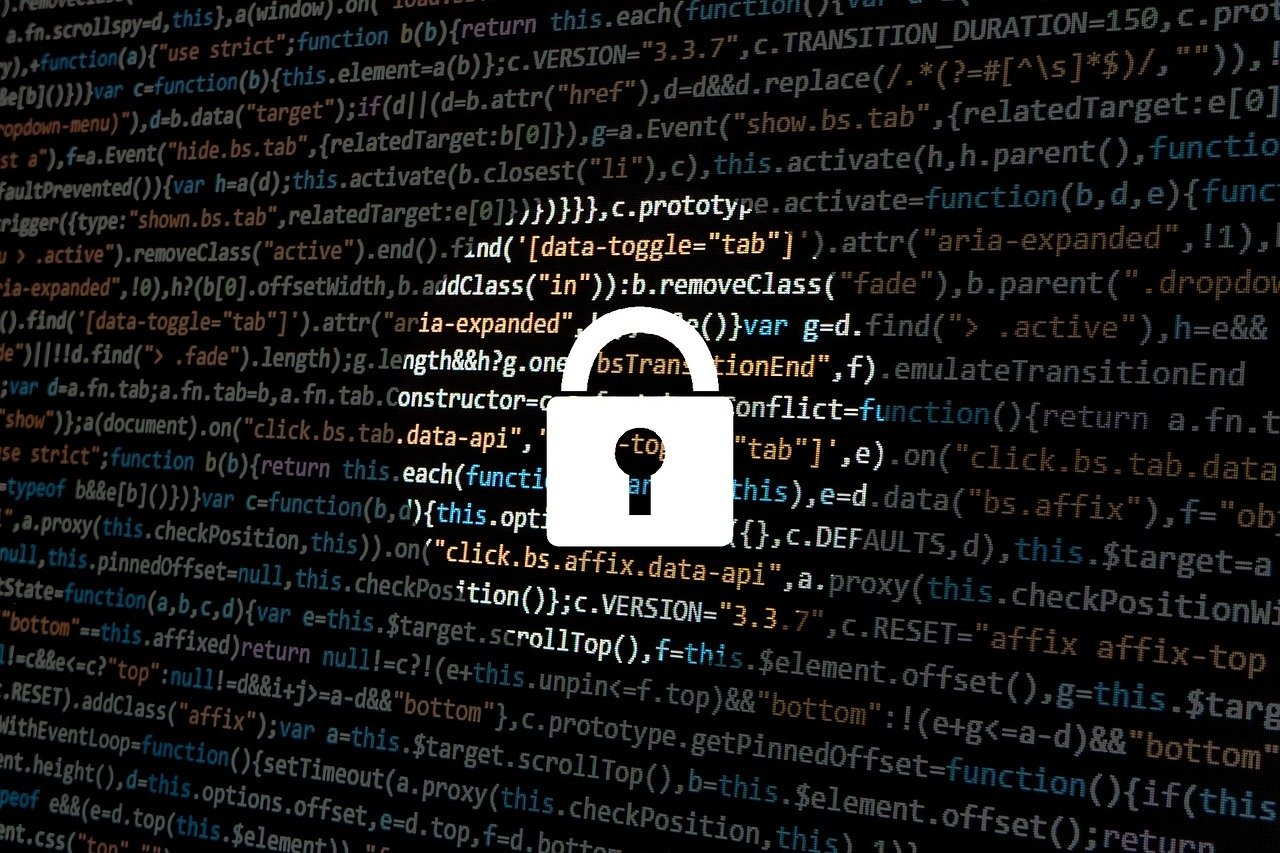Educational institutions today have become increasingly reliant on data collection to manage student information, monitor progress, and enhance learning experiences. However, with the rise in data breaches and heightened concerns about privacy, it is crucial for these institutions to prioritize data collection compliance. Compliance ensures that educational institutions adhere to stringent regulations and secure students’ personal information. In this article, we will explore the importance of data collection compliance for educational institutions, the legal requirements they must meet, and how partnering with a knowledgeable lawyer can help navigate the complexities of this area, ultimately safeguarding the institution and its stakeholders. So, if you are an educational institution looking to ensure data collection compliance, read on to understand how our expert attorney can assist you with your specific needs.

Data Collection Compliance for Educational Institutions
In today’s digital age, educational institutions have access to vast amounts of student data. From enrollment information and academic records to disciplinary actions and demographic data, educational institutions collect and store a wide range of personal information about their students. However, with the increasing concerns surrounding data privacy and security, it is crucial for educational institutions to ensure compliance with data collection regulations and take necessary measures to safeguard student data.
Understanding Data Collection in Educational Institutions
Data collection in educational institutions refers to the process of gathering and storing information about students for various purposes. This data can include personally identifiable information (PII) such as names, addresses, social security numbers, and academic records. It can also include sensitive data such as health information or disciplinary records.
There are several types of data collected in educational institutions, including demographic data, academic performance data, attendance records, disciplinary records, and health information. Each type of data serves different purposes and requires different levels of protection.
Purposes of Data Collection in Educational Institutions
The primary purpose of data collection in educational institutions is to support the educational and administrative functions of the institution. This includes managing student enrollment, monitoring academic performance, and providing necessary support services to students.
Data collection also plays a crucial role in educational research and policy-making. By analyzing student data, educational institutions can identify trends, assess the effectiveness of certain teaching methods or programs, and make informed decisions to improve educational outcomes.
Challenges and Limitations in Data Collection for Educational Institutions
While data collection in educational institutions offers numerous benefits, it also poses several challenges and limitations. One of the main challenges is ensuring the security and privacy of student data. Educational institutions must take proactive measures to protect student data from unauthorized access, use, or disclosure.
Another challenge is the increasing complexity of data collection regulations. Educational institutions must comply with a range of laws and regulations that govern the collection, use, and disclosure of student data. Navigating these legal requirements can be time-consuming and resource-intensive for institutions.
Additionally, the use of third-party vendors or cloud-based services for data storage and processing introduces another layer of complexity and potential risks. Educational institutions must carefully select and monitor these vendors to ensure they meet the necessary compliance standards.
Importance of Data Collection Compliance for Educational Institutions
Ensuring data collection compliance is of paramount importance for educational institutions for several reasons.
Protecting Student Privacy and Confidentiality
One of the primary reasons for data collection compliance is to protect the privacy and confidentiality of student information. Students and their families trust educational institutions with their personal information, and it is the institution’s responsibility to safeguard that information.
Compliance with data collection regulations helps prevent unauthorized access, use, or disclosure of student data. By implementing proper security measures and following privacy best practices, educational institutions can build trust and maintain the confidentiality of student information.
Maintaining Trust and Reputation
Educational institutions rely on the trust of students, parents, and the wider community. Any mishandling or unauthorized use of student data can significantly damage an institution’s reputation.
By prioritizing data collection compliance, educational institutions demonstrate their commitment to responsible data handling practices. This not only helps maintain trust with students and parents but also enhances the institution’s reputation as a reliable and ethical entity.
Mitigating Legal and Financial Risks
Non-compliance with data collection regulations can result in severe legal and financial consequences for educational institutions. Regulatory authorities impose hefty fines and penalties for data breaches and violations of privacy laws.
By ensuring compliance with data collection requirements, educational institutions can mitigate legal and financial risks. Compliance measures help institutions avoid costly legal battles, reputational damage, and potential loss of funding.
Ensuring Ethical and Transparent Practices
Data collection compliance ensures that educational institutions follow ethical and transparent practices when handling student information. Compliance measures promote fairness, accountability, and respect for individual privacy rights.
By integrating ethical considerations into data collection practices, educational institutions demonstrate their commitment to responsible data handling. This helps create a culture of trust, transparency, and respect within the institution.
Laws and Regulations Governing Data Collection for Educational Institutions
Educational institutions are subject to various laws and regulations governing data collection. It is essential for institutions to understand these legal requirements and ensure compliance to protect student privacy and avoid legal consequences.
Family Educational Rights and Privacy Act (FERPA)
FERPA is a federal law in the United States that protects the privacy of student education records. It applies to all educational institutions that receive federal funding. FERPA grants students and their parents the right to access, review, and request amendments to their education records. It also restricts the disclosure of student records without written consent, with specific exceptions.
Educational institutions must comply with FERPA by implementing proper safeguards to protect student records and ensuring appropriate access controls.
Children’s Online Privacy Protection Act (COPPA)
COPPA is a federal law in the United States that protects the privacy of children under the age of 13 online. It applies to websites and online services that collect personal information from children.
Educational institutions that operate websites or online services must comply with COPPA by obtaining verifiable parental consent before collecting personal information from children and implementing suitable security measures to protect this data.
Individual State Laws and Regulations
In addition to federal laws, educational institutions must also comply with state-specific laws and regulations. These laws may impose additional requirements or provide further protections for student data.
Educational institutions should be aware of the specific laws in their state and ensure compliance with any additional requirements beyond federal regulations.
General Data Protection Regulation (GDPR) and International Considerations
For educational institutions operating globally or interacting with students from the European Union (EU), compliance with the General Data Protection Regulation (GDPR) is essential. The GDPR sets strict standards for the protection of personal data of EU residents and imposes significant penalties for non-compliance.
Educational institutions must ensure that their data collection practices align with GDPR requirements, including obtaining valid consent, implementing appropriate security measures, and ensuring the lawful transfer of data to countries outside of the EU.
Specific Data Collection Requirements for Educational Institutions
Educational institutions have specific obligations when collecting student data. Understanding these requirements is essential for compliance and protecting student privacy.
Consent and Notification Obligations
Educational institutions must obtain appropriate consent from students or their parents for the collection, use, and disclosure of personal information. Consent should be voluntary, informed, and opt-in.
In addition to obtaining consent, educational institutions should provide clear and concise privacy notices that inform individuals about the type of data collected, the purposes of data usage, and any third-party disclosures.
Data Minimization and Purpose Limitation
Educational institutions should only collect and retain personal information that is necessary for the stated purposes. They should refrain from collecting excessive or irrelevant data.
Data should only be used for the purposes for which it was collected. Educational institutions must ensure that personal information is not used in a manner that is incompatible with the original purpose of collection.
Technical and Organizational Security Measures
Educational institutions are responsible for implementing appropriate technical and organizational security measures to protect student data. These measures include network security, access controls, encryption, and regular security assessments.
Educational institutions should have policies and procedures in place to address security incidents, such as data breaches, and should provide staff training on incident response.
Data Retention and Disposal Policies
Educational institutions should establish clear policies and procedures for the retention and disposal of student data. Data should not be retained for longer than necessary, and proper mechanisms should be in place to securely dispose of data when no longer needed.
Retention and disposal policies should be aligned with legal requirements and best practices to ensure the appropriate protection of student data throughout its lifecycle.
Transparency and Access Rights
Educational institutions should provide individuals with the right to access their personal information, correct inaccuracies, and request the deletion of their data, subject to legal limitations.
To fulfill these access rights, institutions should establish procedures for individuals to submit requests, verify identities, and respond within relevant timeframes.
Data Transfer and Cross-Border Considerations
If an educational institution transfers student data to a third party or collaborates with international partners, it must ensure that appropriate safeguards are in place to protect the data during transfer and storage.
Transfers of data across borders may be subject to additional legal requirements, such as obtaining adequate safeguards or ensuring the lawful basis for data transfers.
Safeguarding Student Data: Best Practices for Educational Institutions
To effectively safeguard student data, educational institutions should adopt and implement best practices for data handling and security. These best practices include:
Implementing Strong Security Measures
Educational institutions should implement robust security measures, such as firewalls, intrusion prevention systems, and encryption protocols, to protect student data from unauthorized access.
Regular security assessments and penetration testing should be conducted to identify vulnerabilities and address any potential weaknesses in the system.
Regular Data Audits and Assessments
Educational institutions should regularly audit their data collection and storage practices to ensure compliance with legal requirements and internal data policies.
Regular assessments help identify any gaps in data handling processes, improve data practices, and ensure ongoing adherence to compliance standards.
Secure Data Storage and Access Controls
Educational institutions should store student data in secure locations, such as encrypted databases with access controls. Access to data should be limited to authorized personnel who have a legitimate need to access the information.
Institutions should also implement user authentication controls, regular password changes, and multi-factor authentication to prevent unauthorized access.
Employee Training and Awareness Programs
Educational institutions should provide comprehensive data protection training to their employees to raise awareness about the importance of data privacy and security.
Training programs should cover topics such as data protection policies, data handling procedures, and incident response protocols. Ongoing training and education help ensure that employees remain up to date with the latest compliance requirements and best practices.
Third-Party Vendor Management
When engaging third-party vendors for data processing or storage, educational institutions should conduct due diligence to ensure the vendors have robust data protection measures in place.
Contracts with vendors should clearly outline their responsibilities regarding data security and privacy and include provisions for regular audits, incident reporting, and termination clauses in case of non-compliance.
Data Encryption and Anonymization Techniques
To enhance data security, educational institutions should consider implementing encryption and anonymization techniques. Encryption helps protect data during storage and transmission, while anonymization ensures that personal identifiers are removed from data sets.
By using these techniques in conjunction with other security measures, educational institutions can significantly reduce the risk of unauthorized access to sensitive student data.
Training and Education on Data Collection Compliance
Educational institutions should prioritize staff training and education on data collection compliance to ensure a culture of responsible data handling.
Importance of Staff Training on Data Collection Compliance
Staff training is crucial for ensuring that employees understand their roles and responsibilities in data protection and compliance. Training programs should cover legal requirements, internal policies, and best practices for data collection, use, and disclosure.
Creating a Culture of Privacy and Security
Educational institutions should foster a culture that values privacy and security. This includes raising awareness among staff about the importance of data protection, promoting good data handling practices, and integrating privacy considerations into decision-making processes.
Periodic Training and Updates
Data protection practices and regulations evolve over time. Educational institutions should conduct periodic training sessions and provide updates to staff to ensure they stay informed about any changes in data collection compliance requirements.
Engaging External Experts for Training and Education
Educational institutions may consider engaging external experts, such as legal professionals or consultants, to provide specialized training on data collection compliance. These experts can offer insights into legal requirements, emerging trends, and best practices in data protection.

Data Collection and Privacy: Balancing Rights and Obligations
Educational institutions must balance the rights and obligations associated with data collection and privacy. Various considerations come into play when handling student data.
Understanding Privacy Rights in Education
Students have privacy rights that must be respected by educational institutions. These rights include the right to control their personal information, access their education records, and request corrections or deletions.
Educational institutions must ensure that their data collection practices align with these privacy rights and are in compliance with applicable laws and regulations.
Balancing Student Privacy and Educational Research
Educational research plays a vital role in improving educational outcomes. However, it must be balanced with the need to protect student privacy.
Educational institutions should ensure that research involving student data follows ethical guidelines and obtains appropriate consent. Anonymization techniques can also be employed to protect student identities while enabling valuable research insights.
Legal Basis for Data Processing
Educational institutions must have a lawful basis for processing student data. This can include obtaining consent, fulfilling a legal obligation, performing a contract, protecting vital interests, or pursuing legitimate interests, subject to applicable legal requirements.
Understanding the legal basis for data processing helps educational institutions ensure compliance and protect student privacy.
Handling Sensitive Information
Educational institutions may collect sensitive information about students, such as health records or disciplinary records. Proper safeguards must be in place to protect the confidentiality and security of this sensitive data.
Educational institutions should establish strict access controls, encryption protocols, and data handling procedures to ensure sensitive information is handled with utmost care.
Ensuring Data Accuracy and Integrity in Educational Institutions
Data accuracy and integrity are crucial for educational institutions to make informed decisions and provide quality education. Institutions should implement measures to ensure data accuracy and minimize errors.
Implementing Quality Control Measures
Educational institutions should establish quality control measures to validate and verify the accuracy of student data. This can include regular data audits, verification processes, and error detection procedures.
By conducting periodic checks, institutions can identify and rectify any errors or inconsistencies, ensuring the reliability of student data.
Data Validation and Verification
Educational institutions should implement validation and verification procedures to ensure the accuracy of student data. This includes verifying data against reliable sources, conducting cross-references, and validating data entry processes.
By implementing validation and verification procedures, institutions can minimize errors and ensure the integrity of student data.
Maintaining Updated and Accurate Records
Educational institutions should strive to maintain updated and accurate student records. Timely updates to records, such as contact information, course registrations, or academic achievements, are essential to provide accurate information and support effective communication.
Regular data maintenance procedures, such as periodic data reviews and record cleanup activities, help ensure that student records are up to date and reflect accurate information.
Minimizing Errors and Inconsistencies
Errors and inconsistencies in student data can lead to incorrect decisions or improper support services. Educational institutions should implement processes to minimize errors and inconsistencies, such as standardized data entry practices, automated validation checks, and error reporting mechanisms.
By minimizing errors, institutions can improve the quality and reliability of student data, ultimately leading to more effective educational outcomes.

Data Breaches: Preventing and Responding to Incidents
Data breaches pose significant risks to student privacy and can result in reputational damage and legal consequences for educational institutions. Preventing and responding to data breaches is crucial for effective data collection compliance.
Educational institutions should implement the following measures to prevent and respond to data breaches:
Implementing Robust Security Measures
Strong security measures, such as firewalls, intrusion detection systems, and encryption protocols, can help prevent unauthorized access to student data.
Educational institutions should regularly update security systems, patch vulnerabilities, and conduct security audits to detect and address any potential weaknesses.
Incident Response Plan
Educational institutions should develop and implement an incident response plan to effectively respond to data breaches. This plan should include procedures for reporting incidents, containing the breach, notifying affected individuals, and cooperating with law enforcement or regulatory authorities.
An effective incident response plan helps minimize the impact of data breaches, protect affected individuals, and facilitate the recovery process.
Regular Monitoring and Testing
Continuous monitoring and testing of security systems and processes help identify any potential vulnerabilities or anomalies in data handling practices.
Educational institutions should conduct regular security assessments, penetration testing, and vulnerability scans to proactively detect and address any security weaknesses.
Communication and Notification
In the event of a data breach, educational institutions should communicate transparently with affected individuals, providing timely and accurate information about the breach, potential risks, and steps individuals can take to protect themselves.
Notification should be provided in compliance with legal requirements and should include information on how individuals can seek assistance or report any concerns about the breach.
The Role of Parental Consent in Data Collection for Minors
Data collection involving minors requires special considerations, and parental consent plays a significant role in ensuring the protection of their children’s information.
Legal Requirements for Parental Consent
In many jurisdictions, including the United States, obtaining parental consent is necessary for collecting personal information from minors under a certain age, typically 13 years or younger.
Educational institutions must adhere to the legal requirements for obtaining valid parental consent, which may include providing clear and understandable consent forms, ensuring the authenticity of the consent, and offering options for parents to revoke consent.
Verifying and Documenting Consent
Educational institutions should implement mechanisms to verify and document parental consent for the collection of minor’s personal information. This can include electronic consent processes, signed consent forms, or third-party verifications.
Maintaining a record of parental consent helps ensure compliance with data collection regulations and provides evidence of adherence to legal requirements.
Age-Appropriate Data Collection Practices
Educational institutions must employ age-appropriate data collection practices when dealing with minors. This means collecting and using personal information in a manner that respects the maturity and privacy rights of minors.
Educational institutions should review their data collection practices to ensure they align with the relevant legal frameworks and best practices for handling data from minors.
Parental Rights and Control over Children’s Data
Parents have the right to control their children’s personal information and make decisions regarding its collection, storage, and use.
Educational institutions should provide parents with clear information about their rights and control over their children’s data. This includes offering options for parental consent, providing access to children’s records, and offering mechanisms for parents to exercise their rights under applicable data protection laws.
Conclusion
Data collection compliance is a critical aspect of contemporary educational institutions. By understanding the types of data collected, complying with relevant laws and regulations, implementing best practices for data security, and ensuring data accuracy, educational institutions can safeguard student privacy, maintain trust, mitigate risks, and create a culture of responsible data handling.
By prioritizing data collection compliance, educational institutions demonstrate their commitment to protecting student privacy, fostering trust, and operating ethically in an increasingly data-driven world.
FAQs:
Q: What is the importance of data collection compliance for educational institutions?
A: Data collection compliance is essential for educational institutions to protect student privacy, maintain trust, mitigate legal and financial risks, and ensure ethical and transparent practices in handling student information.
Q: What are some laws and regulations governing data collection in educational institutions?
A: Some laws and regulations governing data collection in educational institutions include the Family Educational Rights and Privacy Act (FERPA), Children’s Online Privacy Protection Act (COPPA), individual state laws, and the General Data Protection Regulation (GDPR) for institutions operating globally.
Q: What are some best practices for safeguarding student data in educational institutions?
A: Best practices for safeguarding student data include implementing strong security measures, conducting regular data audits, secure data storage and access controls, employee training and awareness programs, third-party vendor management, and data encryption and anonymization techniques.
Q: What is the role of parental consent in data collection for minors in educational institutions?
A: Parental consent is important in data collection involving minors to ensure the protection of their personal information. Educational institutions must adhere to legal requirements for obtaining parental consent, verify and document consent, employ age-appropriate data collection practices, and respect parental rights and control over children’s data.
